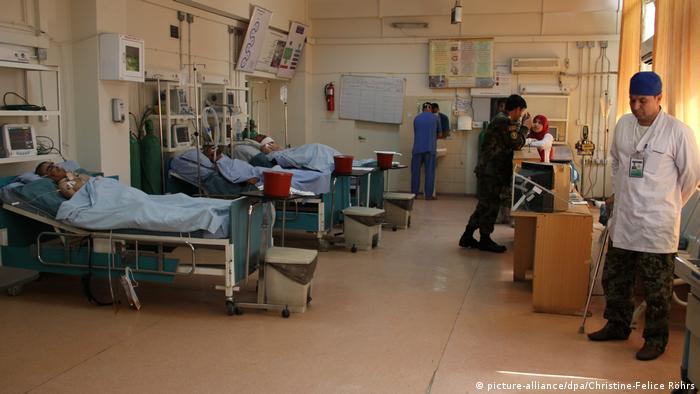A soldier experienced Trauma. How does this affect his children or the grandchildren? Alon Chen from the Max-Planck-Institute for psychiatry, examined how trauma alters the epigenetics of people.

Holocaust Survivors, soldiers from combat, victims of rape: For years, the Max-Planck-Institute for psychiatry in Munich studied the “epigenetic inheritance”, i.e. how the experience gained during the life of the parents, will have an impact on the genes of the offspring will have and what role could they play in the development of the children.
The term epigenetics is composed of the words genetics and Epigenesis, the development of a living being. As a kind of link between environment, epigenetics influences and genes determines the conditions under which a Gene is activated and when it is muted again, this is called gene regulation.
How traumas arise and what diseases they and subsequent generations can, explains Prof. Dr. Alon Chen, he is the Director and scientific staff of the Max-Planck-Institute for psychiatry.
DW: How a stress situation is different from a traumatic experience?
Alon Chen: There are many different types of Stress exist: There is a slight strain that can become chronic. For example, if we are upset at work or a day in a traffic jam. Such stress factors can lead to an increased susceptibility for depression.
But it is not a Trauma, which would trigger a post-traumatic stress disorder (PTSD) arises. It must be strong and acute trauma. For example, in the case of rape, accidents, or war stakes of the case.
Most of the patients recover within a few weeks, and can return to normal life. The symptoms but after a month, still, we speak of a PTSD. I know people who show even after 40 years, still the same symptoms.
More: Stressed genes
What are the symptoms of those suffering from?
Typical symptoms of sleep problems and nightmares. The patients suffer from anxiety and often have concentration problems. Also, you are Jumpy, to jump, for example, quickly, when a loud noise is heard.
PTSD patients often have problems with risk assessment, for example, you run easily on the road. Overall, these people are not able to function in everyday life.

PTSD patients have trouble functioning in everyday life.
In their current study, they have found that trauma can lead to epigenetic changes. But how does epigenetics work?
This is a relatively new field. When we speak of epigenetic changes, we do not mean that the letters of the DNA changes, so your sequence. Epigenetics goes beyond the genetics. We are talking chemical changes that affect, in what the DNA is translated.
Through this process, the proteins in our body, including our brain. The proteins are the functional units that do the actual work. For example, they identify which nerve cells are more or less active, and ultimately affects our behavior.
More: crime: epigenetics, violent criminals on the trail

Alon Chen, Director at the Max-Planck-Institute of psychiatry
How do we share experiences genetically to our offspring?
In the same way as the DNA, the so-called “epigenetic signature is given” to the following generations. Currently, these features can be up to third-Generation post.
If we look, we see, for example, the third Generation of Holocaust Survivors view or the grandchildren of the soldiers from the second world war, still epigenetic traces of the trauma. This meant that these people are anxious or vulnerable to stress-related diseases.
It is still unclear how these epigenetic changes are inherited. Because there are many factors to play with. If a mother is exposed to great Stress or epigenetic signature of your parents has inherited, changed the way in which it treats its children.
Environmental influences also play a role in the development of a child as the inheritance. That is why it is so difficult to understand the mechanisms.
More: The Trauma after the use of
How can PTSD be patient be treated?
PTSD-patients may be currently taking medication or a psychotherapy visit. However, both methods are useful in the treatment of the disease is only partially effective. The medical need is extremely large.
In order to develop new types of treatments, we must understand the mechanisms. We need to understand what happens in the brain, which genes are involved, and what are the epigenetic modifications bring people to a higher risk of developing the disease.
Only in this way can we develop methods for the treatment or Affected at an early stage prevent it, to develop a post-traumatic. Then we could determine early on if a Person is particularly prone to PTSD and say for example, you should not be as a soldier to Afghanistan is sent.

It needs more research for new methods for the treatment of PTSD.
More: antidepressants or psychotherapy?
The epigenetic changes disappear after a successful treatment?
We do not know whether the epigenetic characteristics change after a recovery. Or whether they will simply be blocked only by a little, and again, if the Person is experiencing further Trauma.
Even if it is suspended as an Embryo in the belly of the mother to Stress, that change the epigenetic characteristics. It can grow up normally and won’t notice. But in the Minute that a Trauma is exposed, the epigenetic signature is crucial to developing Its risk, is significantly higher.
Prof. Dr. Alon Chen is the Director and scientific staff of the Max-Planck-Institute for psychiatry.
The Interview was conducted by Liyang Zhao.








